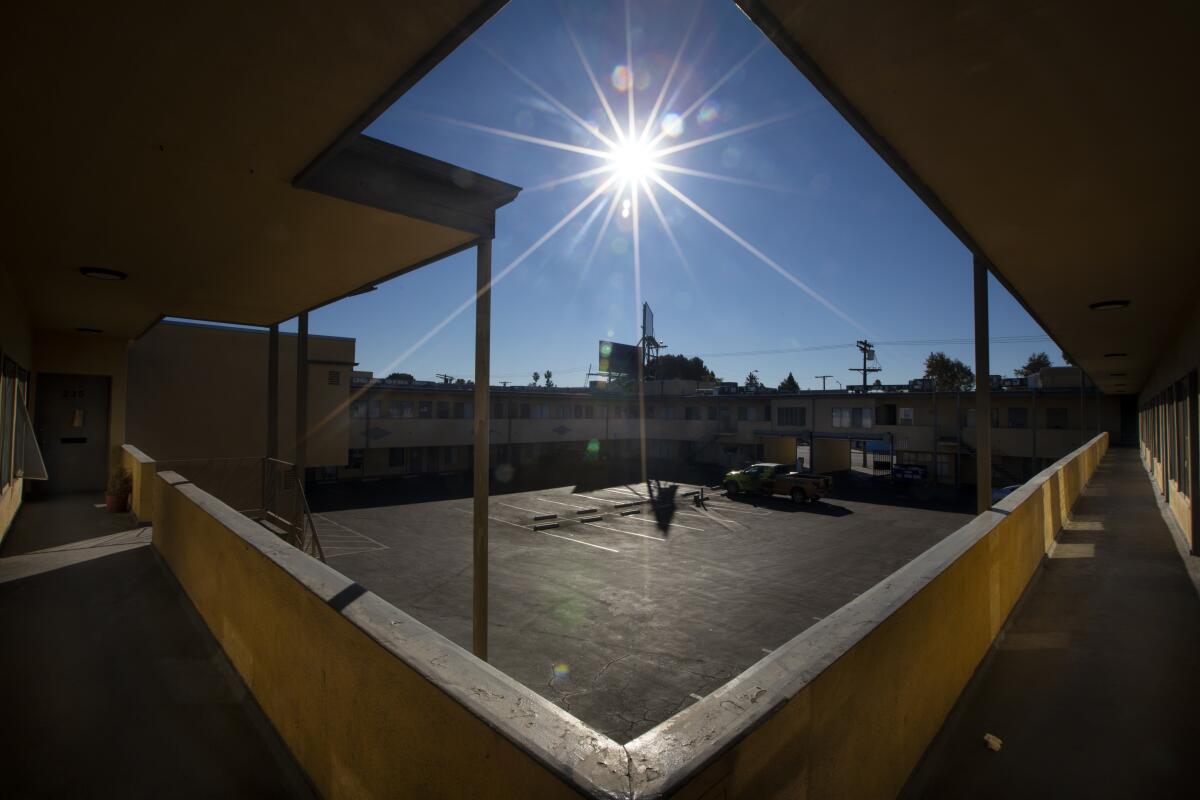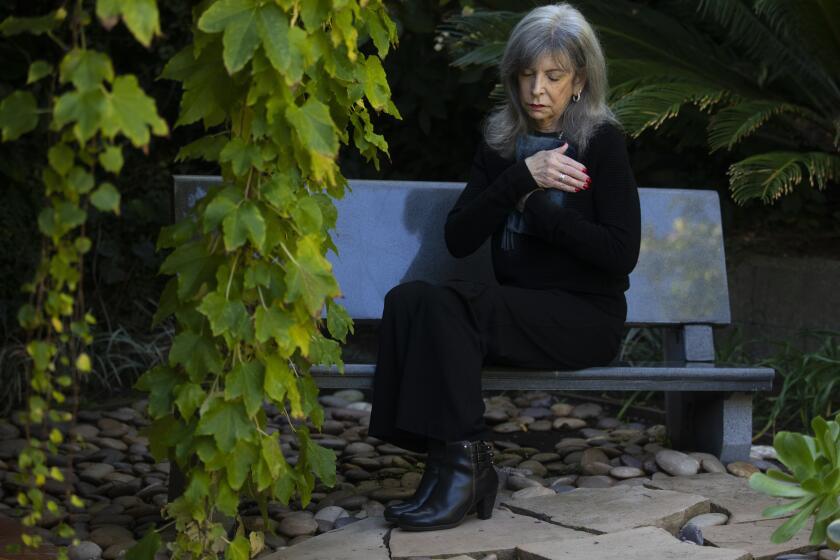New reform measures target fraud, kickbacks in California’s end-of-life care industry

- Share via
Widespread fraud, kickbacks and other abuses in an industry meant to provide comforting care for the dying are the focus of reform proposals that call for a temporary halt to new licenses and a crackdown on patient-recruiting schemes in California’s booming hospice business.
A bill working its way through the state Senate would impose a one-year moratorium on new hospice licenses. A related measure in the Assembly would prohibit hospices from paying recruiters or other “referral sources” for new patients, an area that has been ripe for fraud.
Sen. Ben Allen (D-Santa Monica) said his Senate Bill 664 is aimed at “the proliferation of shysters who are making tons of money off both public and private sources” at the expense of vulnerable patients.
The bill, which he said was largely spurred by a Los Angeles Times investigation published in December, is contingent on the state auditor taking up his request to examine the industry and report its findings.
“We support and want to see high-quality, good hospice care in our state and want to see it continue to grow,” Allen told the Senate Health Committee this week. “We also want to shut down bad actors.”
The Times’ investigation found that an exponential boom in hospice providers has transformed end-of-life care that was once the realm of charities and religious groups into a multibillion-dollar business dominated by profit-driven operators.
Nowhere has the hospice industry’s growth been more explosive, and its harmful side effects more evident, than in Los Angeles County.
Over the last 20 years, the number of U.S. providers has roughly doubled, while Medicare spending on hospice has grown by a factor of six, to $19.2 billion a year. More than 1.5 million Medicare beneficiaries now receive care from some 5,000 hospices, the vast majority of them for-profit operators.
Los Angeles County’s hospices have multiplied sixfold in the last decade and now account for more than half of the state’s roughly 1,200 Medicare-certified providers, The Times’ analysis of federal healthcare data showed.
Scores of hospices have sprung up along a corridor stretching west from the San Gabriel Valley through the San Fernando Valley, which now has the highest concentration of providers in the nation.
The Times found that Glendale had 60 hospices, while Burbank had 61 and Van Nuys 63. By comparison, New York state and Florida each had fewer than 50.
Many California hospices are small operations, some purchased as investments by people with little or no healthcare experience. There are few qualifications for starting or operating a hospice beyond having a clean felony record, getting licensed by the state and being certified by Medicare, a process that costs only a few thousand dollars.
Allen’s bill has been endorsed by California Advocates for Nursing Home Reform, which cited The Times’ reporting in a letter to lawmakers that said “it is time to hit the pause button on hospice expansion” in California.
A Times investigation found care failures at hospices, including mismanaged medications, neglected wounds and missed appointments.
“SB 664’s moratorium will prevent more bad actors from entering the hospice business while giving the state time to create a system that screens operators to ensure they are qualified and that their services are needed,” wrote Executive Director Patricia McGinnis.
“Californians who are dying deserve far better than to be exploited by corrupt hospice providers,” she said.
The bill so far has faced no formal opposition. Peter Kellison, speaking for the California Hospice and Palliative Care Assn., told Allen’s committee that his organization has concerns about the effectiveness of a moratorium but is neutral on the legislation.
“Inarguably,” he said, there has been “an appalling abuse of the public by those unscrupulous hospice providers that have been highlighted in media stories, coverage and government reports.”
A second bill in the works addresses another of The Times’ key findings, namely that heated competition for new patients has spawned a cottage industry of kickbacks to crooked doctors and recruiters who zero in on prospective patients at retirement homes and other venues.
To qualify for hospice, patients must be certified as terminally ill by their attending physicians, if they have them, and by a hospice doctor.
But many of those signed up by recruiters with promises of medical care, equipment or housekeeping services were not dying, The Times found. Some later learned they had signed away their rights to lifesaving emergency medical treatment.
Sponsored by Assemblywoman Jacqui Irwin (D-Thousand Oaks), Assembly Bill 1280 would prohibit hospice providers or their agents from paying recruiters or others for patient referrals. It also prohibits hospice employees, salespeople or others who receive any form of compensation for referrals from providing consultation on eligibility or services.
“Preying upon the sick and dying is despicable, and it’s unacceptable that California leads the nation in hospice fraud,” Irwin said, calling her bill “a first step” toward addressing monetary incentives that can lead to fraud.
“We need checks and balances to help people and caretakers, who are often under duress when making these difficult decisions,” she said. “We have a responsibility to ensure that patients who are at the end of life receive the right care that addresses the patients’ and family needs.”
More to Read
Sign up for Essential California
The most important California stories and recommendations in your inbox every morning.
You may occasionally receive promotional content from the Los Angeles Times.
















